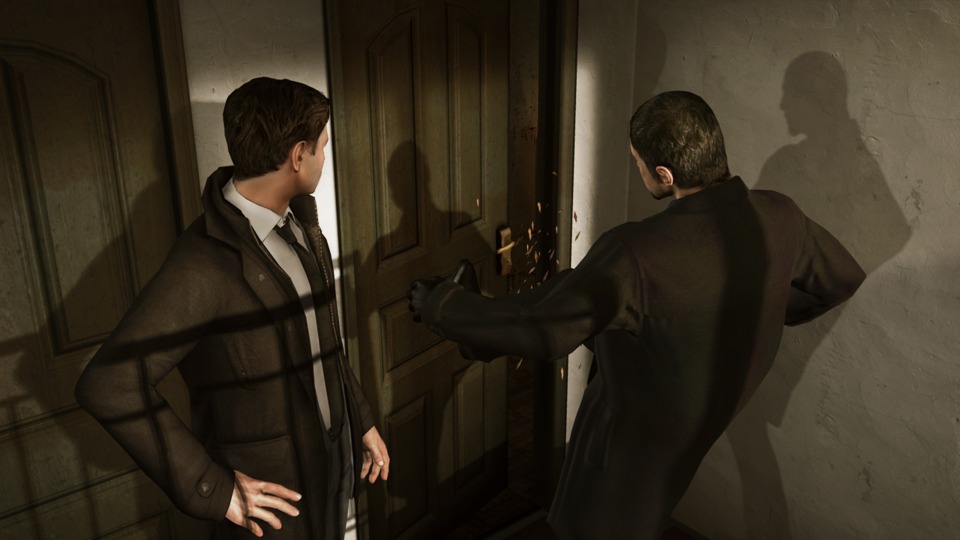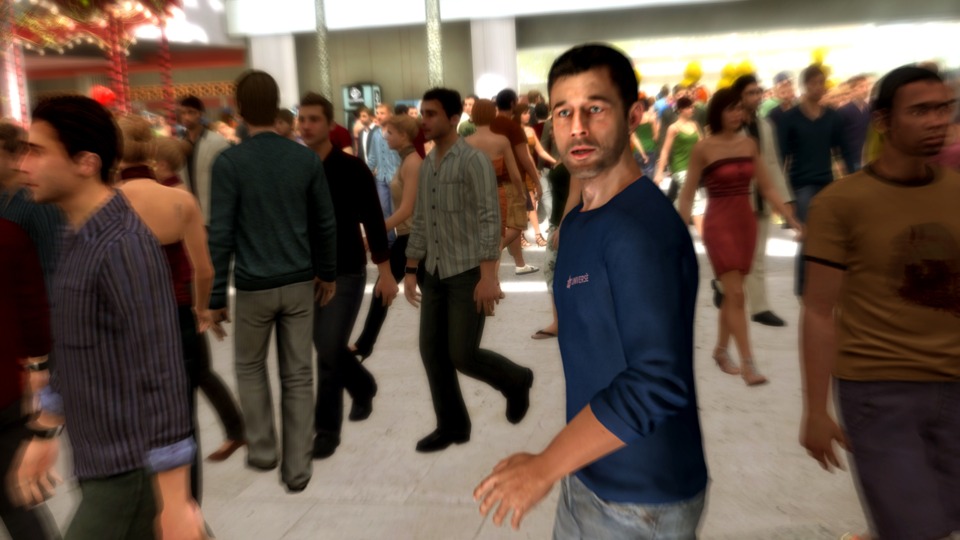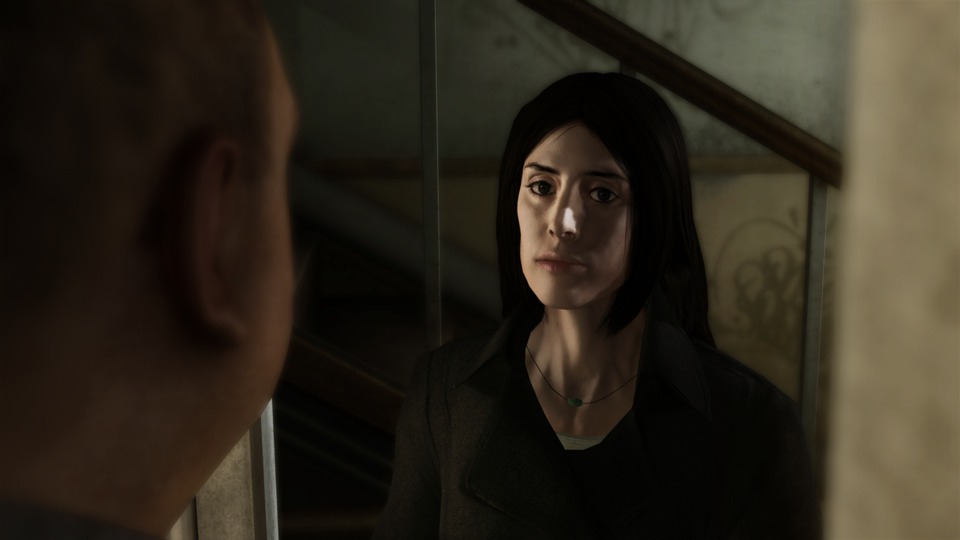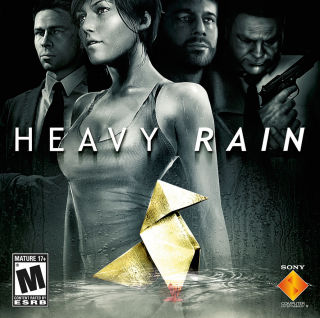A big step forward for videogame storytelling
When I heard that Quantic Dream were making another narrative-heavy adventure where the player’s choices have an impact on the story, I had nightmarish visions of their last game, Fahrenheit, all over. Fahrenheit was the first game to be developed exclusively in hell: it lured you in with false promises, and initially looked and played very well, and just as you had invested enough time in it, it pulled the rug from under your feet. Past the point of no return, you almost felt obliged to endure the ending, as if you deserved to be tortured for falling into its honey trap. Words can’t describe how truly horrible Fahrenheit was. But that was Fahrenheit. Heavy Rain, their latest game developed exclusively for the PS3, is a completely different (and better) thing.
Whilst my concerns about how Heavy Rain would pan out are reasonably founded – Fahrenheit, after all, is dreadful – I hoped that Quantic Dream would learn from their mistakes the first time around, sell the game as it is, and not fill it with Sci-Fi-Fantasy garbage. For the most part, my hopes became a reality; Heavy Rain is actually good.
Despite my hate for Fahrenheit, Heavy Rain has quite a bit in common with it; it takes you along a set narrative path where your character can make minor or major choices that have an impact on what information you acquire and how much you know (or don’t know) about certain events, which culminates in a variety of different endings.
The player controls a cast of characters who each have rather two-dimensional roles to play: Ethan Mars is the main protagonist and the center of the game’s events, who has to deal with his sense of morality and how far he’s prepared to go to save his son; Madison Paige, the photojournalist carrying out an investigation using the few small leads she can find, all the while getting herself into more trouble than the scoop is worth; Norman Jayden, an FBI profiler with high-tech gadgetry which he uses to survey the Origami Killer’s crime scenes, collect evidence and feed it into his database to help catch the killer; and Scott Shelby, a private investigator who travels the city, meeting some of the parents of the Origami Killer’s victims.
Each of these characters have their own unique gameplay quirks related to their roles in the story which provides a nice amount of variety with what you actually do in each scene. With Ethan you’re often confronted with moral issues or scenes of extreme torture as tests by the Origami Killer to see how far he’s prepared to go. After an extremely dark moment with Ethan, our perspective may shift to Madison, who may be creeping around a murderer’s house or tarting herself up to seduce a nightclub owner, or Jayden who analyses crime scenes with clinical perfection. Scott Shelby’s scenes add the human touch to the victims and their families which gives the player a more emotional investment and impetus towards catching the killer.

Whilst it’s not hard to be better than Fahrenheit, it’s easy to tell that Quantic Dream have really gone above and beyond to create a mindlessly entertaining interactive drama, not dissimilar from various detective serials, complete with the hackneyed characters (with names to match their cookie cutter personalities, such as Ethan Mars and Norman Jayden), clichéd plot and hammy dialogue. Whilst I personally cringe at these kind of things, no matter what medium they’re in, it works because that’s all that Heavy Rain strives to be. If you switch your brain off, as the game intends for you to do, and play with your heart, Heavy Rain becomes an intensely satisfying eight hour experience.
Whilst the story is uncomplicated and lacks any real depth, writing it off as simple would be doing the game a disservice. Whilst I don’t really take the plot and exposition very seriously (and I don’t suppose I was supposed to), Heavy Rain oozes in emotion and atmosphere. Post-opening, the tone of the game is consistently grim, adding to the urgency surrounding the Origami Killer’s latest abduction. But before we even get into the major plot, the game sets the scene of family life very well. Some would argue that the opening in Ethan’s home is very slow, but I felt that it was enough for me to understand what he was about to lose.

The other achievement of Heavy Rain in narrative terms is the sheer scale of it. Small choices can have big consequences, and all of these cascade to create an ending that is unique to the player. Any of the four characters can die at any moment, and the game is not very forgiving when it comes to life or death situations. All of these choices and all the occurrences, both carefully crafted by the player and those stumbled upon by accident, culminate in the reveal of who the Origami Killer is (a surprise I was very happy with) and a final showdown that is one of the game’s exciting and dynamic action sequences.
As Heavy Rain isn’t an action game, the action sequences play out as cinematics with Quick Time Events (QTEs), which pop on the screen. Heavy Rain’s QTEs aren’t cheap, like they were in Resident Evil 5, and are used with the intent of being frustrating, rather than being mindless interactivity there to only ensure you’re holding the controller during cutscenes. With frustration being the intent, rather than just being a byproduct, the QTEs in Heavy Rain are artfully implemented to suit the mood. Sometimes they’re repetitive, unresponsive and frustrating, and you’re not meant to land them all (the game gives you a certain degree of leeway in failing QTEs, so as to create balance and urgency in the action scenes), whilst others are slower paced, representing more mundane actions such as opening cupboards, doors and drawers.
Having movements of the analog sticks and multiple presses of a button act as gestures rather than context sensitive commands is a minor change in the scheme of things, but it makes a big difference in terms of noticing the details, which is what a lot of Heavy Rain is about and is where it’s the most forward thinking. The fusion of gameplay and narrative is tighter and more seamless than any game before it. Whereas in many games the goal as a designer is to make the gameplay complement (or at the very least gel coherently with) what’s going on in the plot, or vice-versa, the relationship between gameplay and narrative in Heavy Rain is symbiotic; they are completely codependent and Heavy Rain’s plot would be wholly unsuccessful in a game if it weren’t for its unique gameplay, as would Heavy Rain’s gameplay fall flat were it not for its plot. It is a big step forward for those of us who believe that games can have strong narratives.
In fact, about the only disappointing thing in Heavy Rain’s narrative was the ending. There seemed to be a lot going on in the game, and the ending felt as if it should go into intricate details about what I’d done through the whole experience, as a summary of sorts. What I got was a contrived and overwritten exposition rather than an ending. Whilst I’m sure this would’ve gone against Quantic Dream’s presentational philosophy as far as Heavy Rain is concerned, they could’ve put some of the outcomes into a summarised written piece for after the credits, or in an “Extras” segment where they didn’t detract from the overall presentation of the ending.
Another gripe I had was with the tank controls complete with acceleration. Whilst I understand that they were included, in part, to facilitate characters being able to turn on the spot without accidental movement, the frustration they created wasn’t worth it; they created a needless disconnect between me, the controller and what’s happening on screen, something that is unforgivable.

And it’s this “magic” that makes Heavy Rain so special. Quantic Dream have provided us with the framework by which we write our own narrative in a controlled environment. We impart enough of our morality and attention to detail onto the characters to make them sympathetic to us. When they do something that is morally reprehensible, it is because we found it an acceptable thing to do given the circumstances. Similarly, their successes and failures reflect on our decisions and our ability to do things.
This kind of storytelling may, in the near or distant future, be considered primitive, or as a one-trick pony. Having moral-based stories that thrive on choice may prove to be unsustainable after we become conditioned to it and know what to expect, but right now it’s a big step forward and a major innovation in story-driven gaming.
